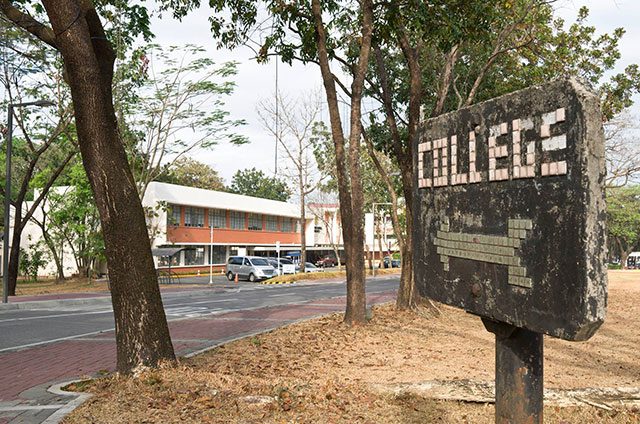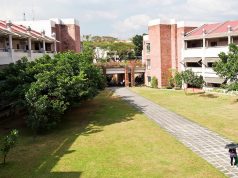There is online clamor for accountability from Ateneo de Manila University over a series of sexual harassment complaints posted anonymously since 2018.
Much of the recent noise was set off when a post by a purported former student who requested not to be named made rounds on Facebook.
The user shared that a faculty member sexually harassed him during a one-on-one consultation for a subject.
The faculty member also allegedly threatened to file false cases of plagiarism against him.
He later found that the faculty member also had other victims, including two of her colleagues. After going through the rigorous investigation, he was surprised that the faculty member was only penalized with a 15-day suspension for her actions.
The university had been too lenient for those accused, the user said, and shared his view that the school is no longer safe for students and faculty alike.
“They have continually protected professors who prey on vulnerable students like me, even allowing those who have been convicted of such acts to return to teaching again. I have been silent far too long about this so now, I am speaking up,” the user said.
“Ateneo needs to be held accountable for this injustice, this travesty, this frankly horrific environment. Ateneo must be safe for everyone and I will not stop talking until Ateneo is safe enough,” he added.
Some members of university organizations held protests on October 15 over the school administration’s supposed lack of action over the incidents.
“We've had enough of this culture of misogyny and sexism.”
HAPPENING NOW: PROTEST OF SEXUAL HARASSMENT ALLEGATIONS AGAINST ATENEO PROFESSORS pic.twitter.com/E1813aKBjS
— CAP Katipunan (@CAP_Katipunan) October 15, 2019
GABRIELA YOUTH SUPPORT STATEMENT TO MEMBERS OF THE ATENEO DE MANILA UNIVERSITY
Gabriela Youth expresses its support with the Ateneo community in their condemnation of the acts of sexual harassment and abuses that have taken place inside their insitution. https://t.co/xO2BD5DwXU
— Gabriela Youth (@gabrielayouthph) October 16, 2019
The demonstrations should be an eye-opener to expose other sexual harassment cases in schools across the country, human rights activist Caloy Conde said.
“Given the power dynamics inside, schools and universities seem the perfect hunting ground for sexual predators,” Conde said.
Given the power dynamics inside, schools and universities seem the perfect hunting ground for sexual predators. #MeToo on Philippine campuses need to be documented and exposed. #SexualHarassment #Rape https://t.co/h7WlRAntPJ
— Caloy Conde (@carloshconde) October 14, 2019
Facebook page Ateneo Freedom Wall became a go-to place for students to anonymously share stories of harassment allegedly perpetrated by faculty members or other students within school grounds.
Some of these posts circulated not only on Facebook but also reached Twitter and Reddit.
Two other cases floated online last year:
- In October 2018, a contributor accused a professor of making students, particularly freshmen, uncomfortable during individual consultations.
- In November 2018, a student narrated that she was raped by two men in one of the restrooms of the Jesuit-run institution.
What the university is saying
Following the mobilization, university officials stressed that the Committee on Decorum and Investigation always looks into formal complaints through a process “required by law” and the rules of the school.
Part of the official statement read:
“Other systems and structures that are already in place, such as the Gender Hub and the University Gender and Development Focal Point, provide checks and balances to ensure that we progress steadily towards greater accountability, restoration and relief.”
It also cited the Data Privacy Act and the Safe Spaces Act as measures they follow in terms of confidentiality of the identities of the individuals involved.
The University has released an official statement regarding the October 15 Sexual Misconduct and Violence Mobilization. pic.twitter.com/BECi2mqoQO
— Ateneo de Manila (@ateneodemanilau) October 16, 2019
Vague provision in the law
The protection of students against forms of sexual harassment is included in the new Republic Act 11313 or the Safe Spaces Act.
Section 21 states that educational institutions are required to investigate the veracity of possible cases of sexual harassment and violence even if the person or group of people involved does not file formal complaints.
Part of it states:
“If a school knows or reasonably should know about acts of gender-based sexual harassment being committed that creates a hostile environment, the school must take immediate action to eliminate the same acts, prevent their recurrence, and address their effects.”
However, anonymous online reports are trickier to handle and pursue for school administrators.
Ateneo officials hoped that the implementing rules and regulations or IRR of the legislation will elaborate on the provision. The IRR is set to be signed on October 28.










